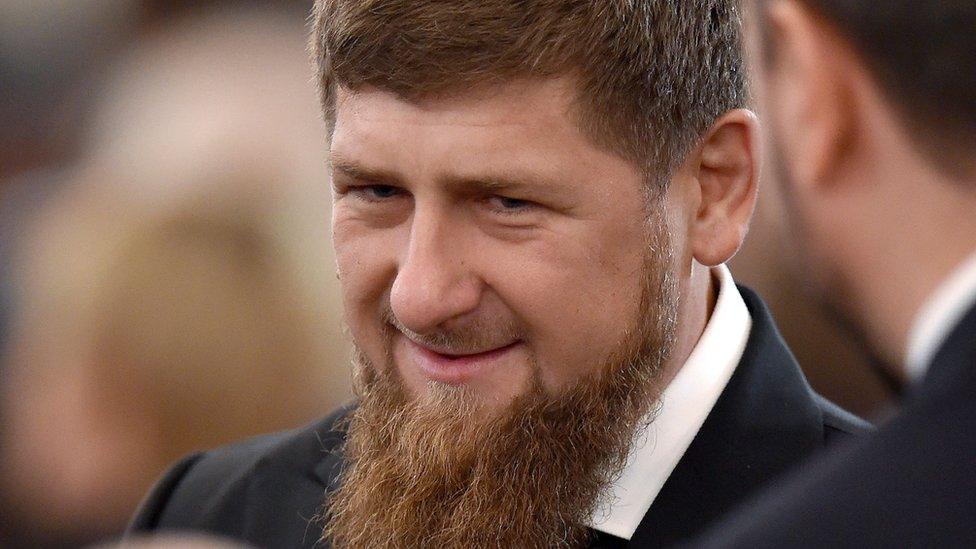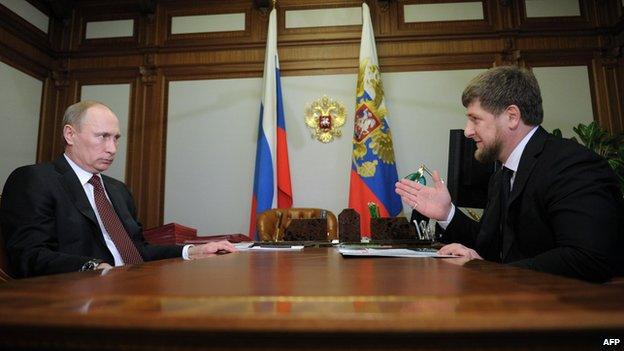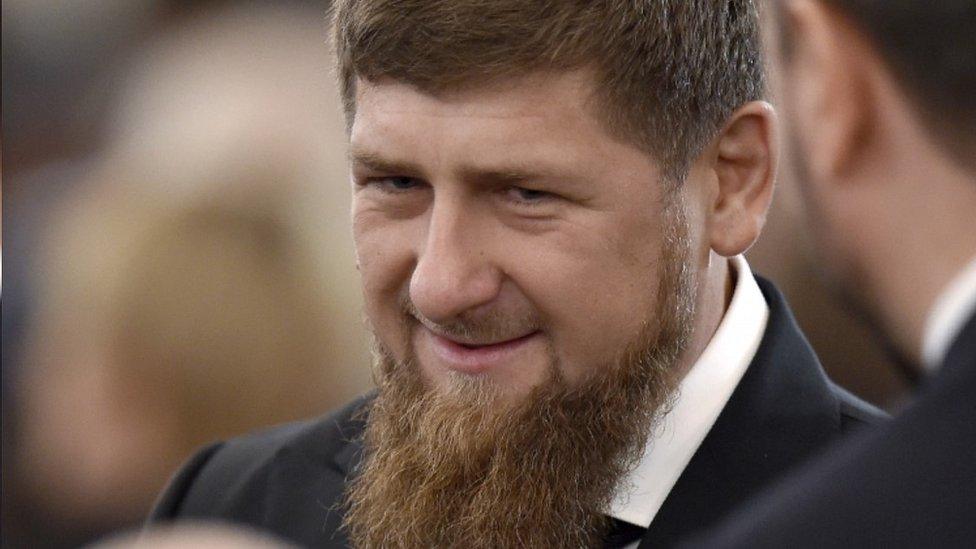US sanctions on Chechnya leader Ramzan Kadyrov are illegal, Russia warns
- Published

Ramzan Kadyrov said he was "proud to be out of favour" with the US
A US move to impose financial sanctions on Chechen leader Ramzan Kadyrov over alleged human rights abuses has been branded "illegal" by Russia.
"We consider these sanctions to be illegal, unfriendly," the Kremlin said.
Washington has accused Mr Kadyrov, a close ally of Russian President Vladimir Putin, of involvement in repression, torture and murder.
Tensions between the nations have risen following alleged Russian meddling in the US presidential election.
On Wednesday, the US Treasury announced that it was imposing sanctions against Mr Kadyrov, including visa bans and asset freezes, under the 2012 Magnitsky Act.
Mr Kadyrov responded by mocking the US move in an Instagram post in which he said "a sleepless night is waiting for me".
"I can be proud that I'm out of favour with the special services of the USA," he added.
On Thursday, Kremlin spokesman Dmitri Peskov said that Russia "disagreed" with the move, adding: "With some certainty, we can assume that the principle of reciprocity will be observed."
Mr Peskov did not specify what he meant by his statement.
Maria Zakharova, a Russian Foreign Ministry spokeswoman, described Washington's announcement as "very grotesque".
"It is sad that a number of groups in the United States still have an obvious desire to pursue the path of destroying bilateral ties," she said.

President Putin relies on Mr Kadyrov (right) to bolster Russian power in Chechnya
Mr Kadyrov, who was appointed Chechen president by Mr Putin in 2007, has a strong alliance with his Russian counterpart.
He has frequently voiced support for the pro-Putin rebels in eastern Ukraine and for Russia's annexation of Crimea.
A former rebel, Mr Kadyrov leads a powerful, much-feared private militia called the "Kadyrovtsy". Human rights groups accuse them of torture, kidnappings and assassinations in Chechnya, a mainly Muslim republic in the North Caucasus left devastated by war in the 1990s.
Critics have also accused Mr Kadyrov of amassing vast personal wealth and abusing his political post.
The new penalties imposed by Washington will also target other Russian officials.
US intelligence has long concluded that Russia tried to sway the vote in last year's presidential election in US President Donald Trump's favour.
Russia has repeatedly denied any involvement or wrongdoing.
The Magnitsky sanctions have been a point of tension between Moscow and Washington, even before Russia's annexation of Crimea caused relations to sour further.
In December 2012, Mr Putin signed into law a ban on Americans adopting Russian orphans in response to the Magnitsky Act.
- Published21 May 2020

- Published11 July 2013